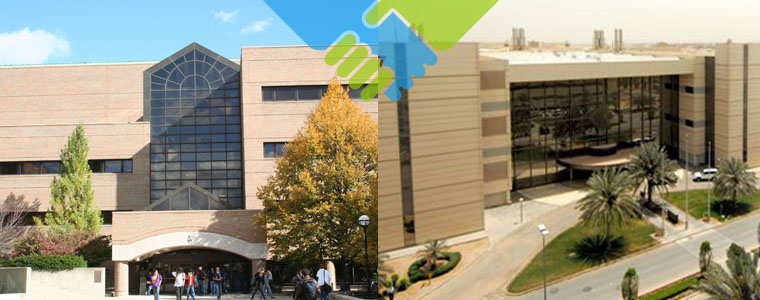New Michigan-Saudi Arabia collaboration promises exciting new research – beginning with the auto industry
KACST will provide manpower and will collaborate with Michigan faculty and students on their projects.

 Enlarge
Enlarge
A new collaborative research center, called the Center of Excellence for Microwave Sensor Technology, has been established between faculty in the College of Engineering and Saudi Arabia’s King Abdulaziz City for Science and Technology (KACST). The Center will be a major site for research in microwave sensor technology, with the first projects focusing on autonomous vehicles and novel approaches to electric vehicle charging.
Researchers involved feel the agreement will be mutually beneficial to the two far-flung institutions. KACST will provide manpower and will collaborate with Michigan faculty and students on their projects. This will give KACST researchers a chance to better understand the ins and outs of advanced research and its execution. In addition, KACST researchers will take courses at Michigan as non-degree seeking students, and short courses will be offered at KACST.
Meanwhile, Michigan’s researchers will have more freedom to pursue ambitious projects that offer real market potential.
“For us, it’s a very unique opportunity to take on a partnership that can last long term,” said Kamal Sarabandi, Rufus S. Teesdale Professor of Engineering and Director of the Center. “It gives us the opportunity to work collaboratively as members of the Center that is not possible when working on single projects. We are also excited at the opportunity to develop intellectual property.”
First priority in terms of research will be applying microwave technology to autonomous vehicles. The automotive industry is in a stage of rapid innovation, and being so close to several major companies gives the Center’s projects great potential for real impact. The projects explored in the new center would encompass many facets of smart driving technology, as well as novel improvements to charging electric vehicles. “We are looking into sub-millimeter-wave collision warning and imaging radar, radar based surface traction sensors, wireless network for intra-vehicle sensor connectivity and inter-vehicle communication,” said Prof. Sarabandi.
The researchers plan to pursue collaborations with the Michigan Transportation Research Institute and Mcity. Mcity is a new U-M facility opening later in 2015 that will provide a proving ground for autonomous vehicles. In addition, Prof. Sarabandi is currently negotiating potential collaborations with local auto companies.
Even more futuristic is their idea for how to charge electric vehicles, using microwave power transfer.
“My vision is basically that as you drive on a highway, the battery is continually charged – you wouldn’t need to stop,” said Prof. Sarabandi. “That would enable a vehicle to go long distances without requiring a large battery for storage. When the battery is reduced, the weight of the vehicle goes down making the car even more efficient.”

 Enlarge
Enlarge
Planning for the Center began two years ago. It has been funded for an initial two-year period at $2.2M, and is renewable indefinitely with an expectation of significantly higher levels of funding. In addition to Prof. Sarabandi, faculty involved in the center include Prof. Michael Flynn, Anthony Grbic, Ernest and Betty Kuh Distinguished Faculty Scholar, Fawwaz Ulaby, Emmett Leith Distinguished University Professor, and Dr.Adib Nashashibi.
 MENU
MENU 
